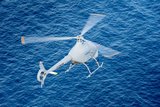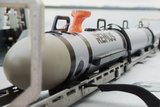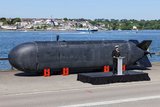Raytheon has been awarded $246.5 million for performance-based logistics for the land-based Phalanx and Rolling Airframe Missile (RAM)/SeaRAM close-in weapon systems.
It will cover the repair, upgrade, or replacement of the systems, as well as inventory and obsolescence management.
The contract includes a two-year base period with one three-year option, which if exercised will bring the contract ceiling value to $466.4 million.
Work will be performed in Louisville, Kentucky, and is expected to be completed by August 2021, or three years after that if the option is exercised.
Navy annual working capital funds will be obligated as individual task orders are issued, and funds will not expire at the end of the current fiscal year.
Naval Supply Systems Command, Weapon Systems Support, Philadelphia, Pennsylvania, is the contracting activity for the award.
RIM-116 Rolling Airframe Missile (RAM) Block 1
Phalanx CIWS






















